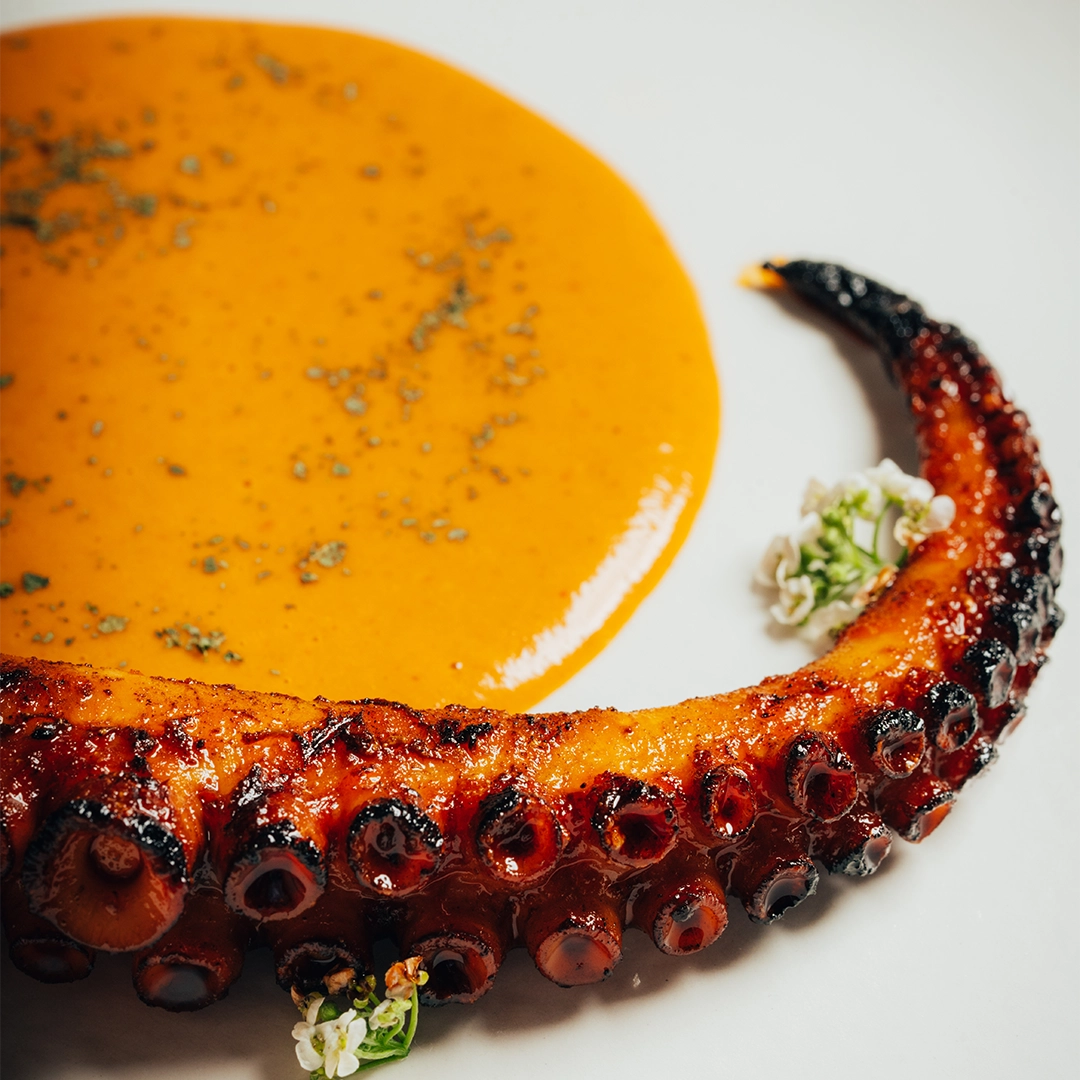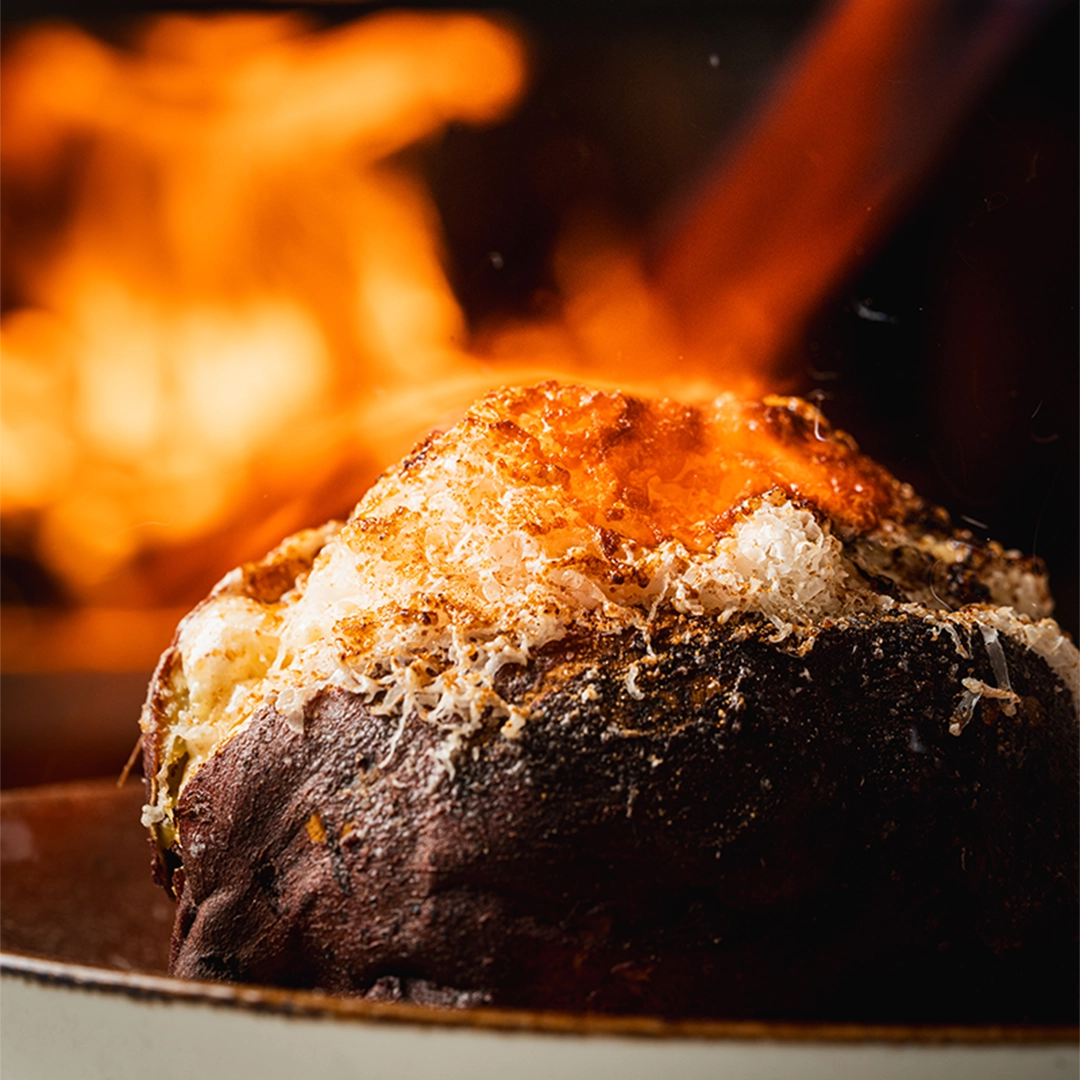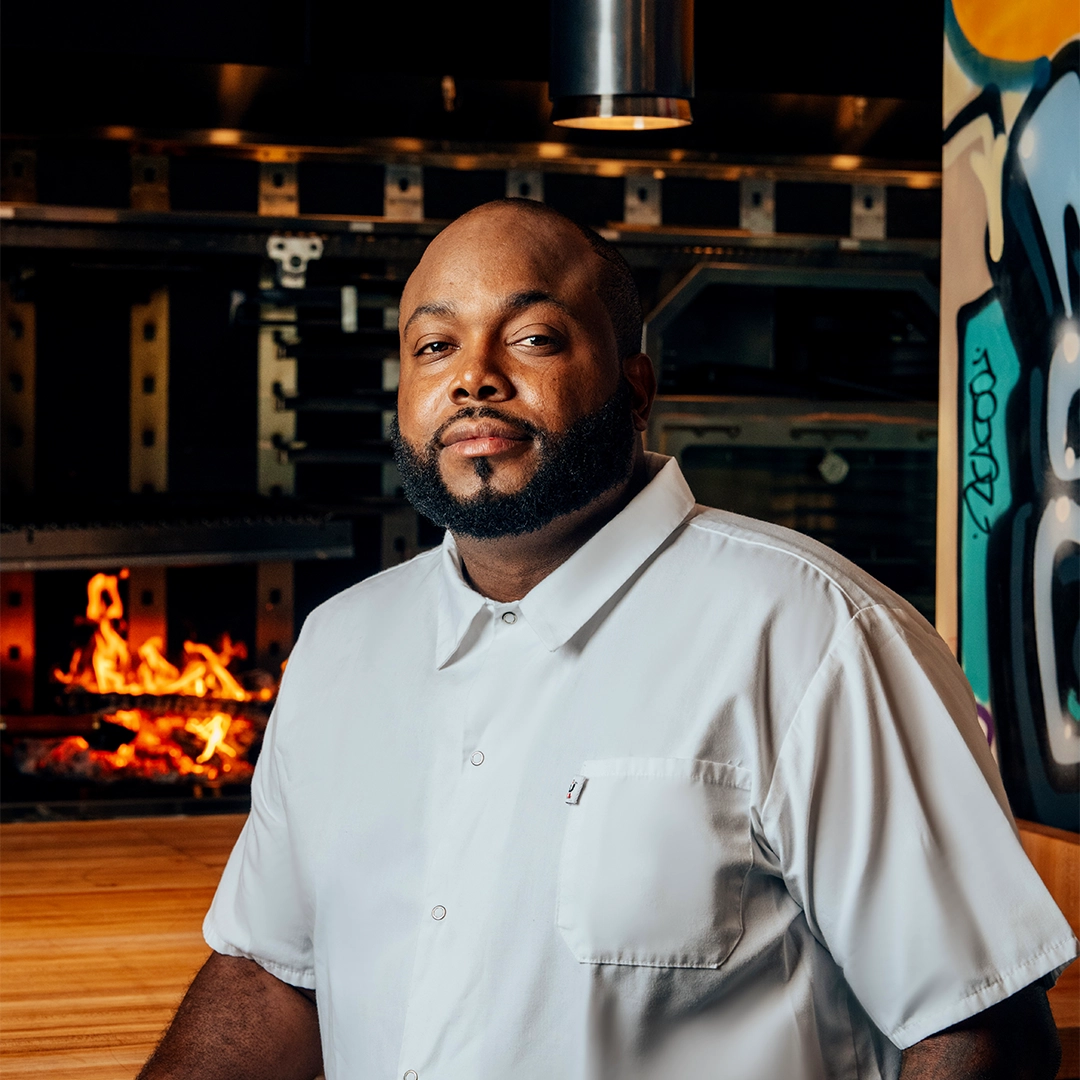by Carrie Honaker | November 4, 2024
Florida’s Hottest Dinner Reservations Are on the Farm
Showcasing the path from seed to soil to plate, these growers and chefs are reshaping Florida's culinary scene.

On a crisp fall evening outside of Gainesville, peach and orange rays of sunlight cut through a canopy of cotton clouds, casting a warm glow over a grove of 500-year-old live oaks and 28 acres of pasture, prairie and wetlands known as Swallowtail Farm, also the home of Noah Shitama and Melissa Muller. Strains of live jazz, the smell of charred oyster mushrooms and wood-fired pork loin filled the air as 75 guests made their way to the communal dining table, draped in white linen. Pale peach Gerbera daisies plucked from the gardens grace the table nestled in a stretch of ancient trees. Local beers, kombucha and coffee flowed along with thoughtfully curated wines. Shitama led guests around the farm, talking about how golden beets, ginger root and other produce grows, how the Jersey cows and chickens are raised, and what modern farm life means.
Every spring and fall for the past 14 years, the agri-couple have opened the farm to the public for ticketed culinary experiences, partnering with local chefs like Clay Conley, owner of Palm Beach’s Buccan, Imoto and Grato; Phil Bailey-Anderson of Afternoon restaurant; and Charlie Keller of Spurrier’s Gridiron Grille to create a feast featuring their freshest crops. It’s an epicurean showcase rooted in community building and, maybe more importantly, sustainable farming.
“We have more and more people moving to Florida every day, and farmland gets eaten up in the process because it’s not the best use in the current valuation scheme,” Shitama said. “It’s hard for people to afford to even keep land in farming because pressures come to bear where they need to sell for development. But I think the one step farms can take is implementing agritourism.”
Shitama grew up in Gainesville, right around the corner from where his farm is now. He left to study religion at Emory University but became disenchanted with his program’s abstract direction. His father, a builder, instilled a love of the practical and concrete. Back in Florida, he followed his father’s path into building and also started gardening in his yard with his two young kids during his time off, which led him to farmers markets and volunteering at local farms.
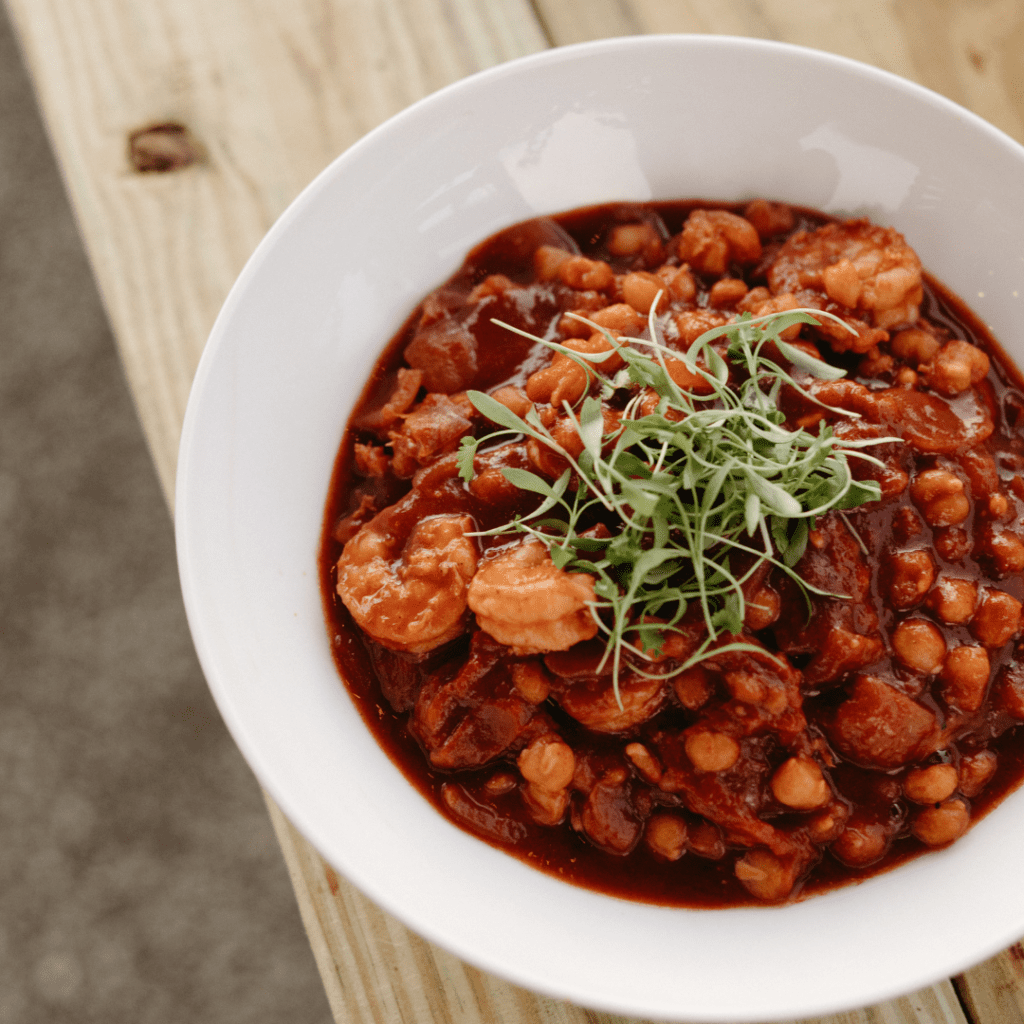
When Shitama left the building trade and turned the ground at his first farm in Alachua in 2009, about 12 swallow-tailed kites circled overhead. He took it as a sign. That experience, combined with the inspiration from his farming mentor, Patrick Ross, who owned Sandhill Farm at the time (named for another iconic native Florida bird), inspired his farm’s name, Swallowtail Farm.
“I had two small children at the time and was feeling like our food choices weren’t superb,” Shitama said. “We started as a CSA (Community Supported Agriculture) farm, practicing regenerative agriculture before it was vogue. I wanted to reconnect people with their food.”
He and Muller happened onto the land of his current homestead on a bike ride one afternoon while exploring some trails outside Gainesville. A long, skinny driveway lined with live oak trees drew them into the lollipop-shaped property. Smitten, they decided this would be their farm’s new home.
“We feel humbled by the privilege of stewarding this extraordinary place, where sandhill cranes, white-tailed deer, foxes, fox squirrels, coyotes, snakes of every stripe, hawks, eagles, kites, gopher tortoises, turtles and an occasional alligator all coexist with the planted fields, cows, chickens, pigs, sheep, cats, dogs and humans here,” Shitama said. Coming soon are glamping tents for farm stays, weddings and other events highlighting the beauty of bucolic North Florida.
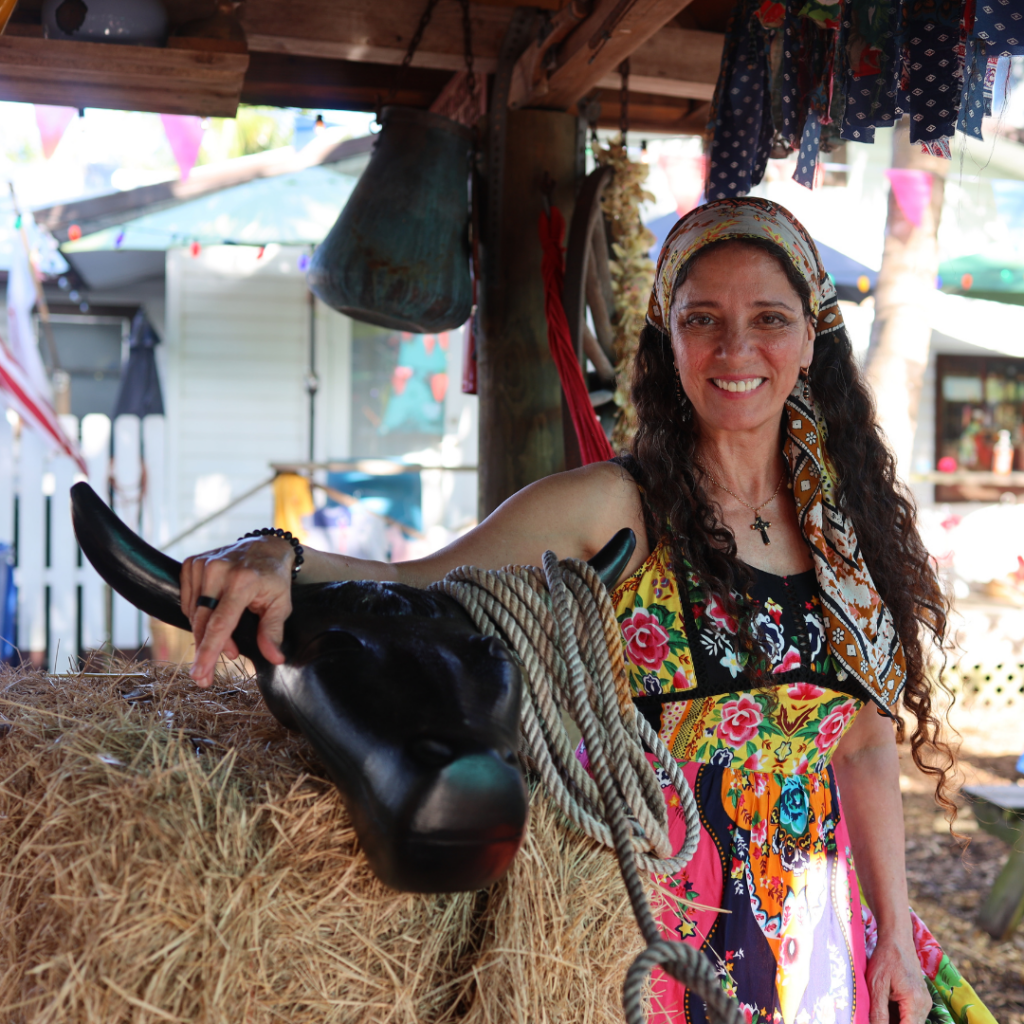
Finding Home on an Urban Farm
Early on most Saturdays afternoons, starting in September, the scent of moqueca de peixe (Brazilian fish stew) and pao de queijo (Brazilian cheese bread) tempt a long line of hungry diners waiting for a coveted seat at the table on Regina’s Farm in Fort Lauderdale, a converted backyard tucked away from the bustling city and beach. Guests are greeted by swags of bistro lights, colorful Brazilian banners, a fire pit for roasting marshmallows and enough tables for 150 people. Colored wristbands are distributed to help the flow of courses.
The evening always begins with soup, six or seven varieties chock-full of oxtail, corn, chicken, grits and more. It is all you can eat (and take home). Next up are salads, plantains, collard greens, rice, feijoada (Brazilian black bean stew), pinto beans, sausage, eggs and yucca. Then comes the chicken pie, ribs, fish, oxtail, beef and vegetarian options like rice and beans with yucca. After dinner, marshmallows roast over the fire pit and Brazilian coffee made with sugarcane from a Homestead farmer fills mugs.
Get an insider look at Jacksonville’s Congaree and Penn
When Regina Rodrigues landed in Florida, she longed for her Brazilian home state, Minas Gerais. She started Regina’s Farm as an oasis, shaded by palm trees and a tall fence, with chickens pecking the ground, wild green onions sprouting in her garden and a Brazilian hammock swinging in a tree. Minas Gerais, known for its gastronomy, inspires all of her dishes.
“I thought, if I could not go back, I could bring Brazil to me. Happiness cannot depend on where we live. I asked my husband to build a wood stove in our backyard, a chicken coop and everything I dreamt about, like tables, swing sets, a little train,” Rodrigues said.
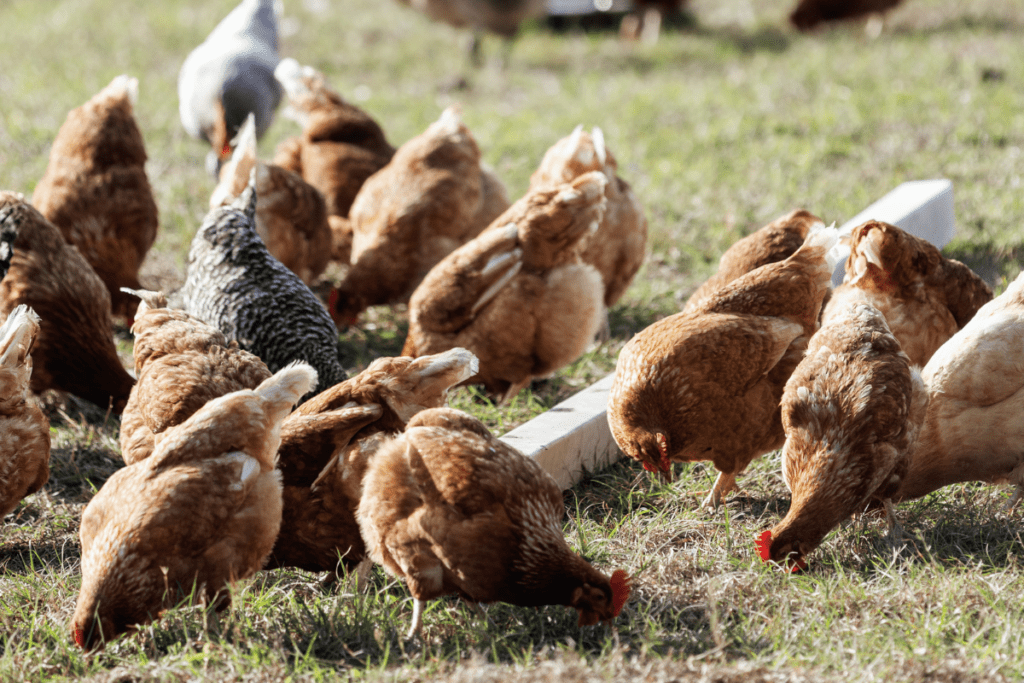
She began entertaining friends from church with her cooking. In 2006, the community of Brazilians in Florida found her, flooding her with requests to join and get a taste of home. In 2013, she established Regina’s Farm as a nonprofit that funds causes such as stopping gun violence in schools, building artificial reefs and funding college scholarships through a portion of her dinner sales.
“It gives us great joy to see our compatriots easing the longing for Brazil and also to see Americans and people from all over the world falling in love with Brazil without even needing to travel,” Rodrigues said.
Dinners fill up fast and the secret to getting a reservation is her son Matthew. He mans the text stream for her. Yes, you must text him to get a table: no web reservations, no phone calls, no reservation app.
“Make friends with Matthew,” Rodrigues said. “Ask him a question, talk to him about skydiving or dance. If you’re a friend of Matthew, it’s going to be easy for you to come.”
Brazilian music fills the air as people relax in hammocks, children ride the makeshift choo-choo train and friendships are formed over a shared meal. “Some people cry. Some people say I can’t believe I have this smell, this food. They bring the kids to see the wood stove like the one their mom cooks over in Brazil, and they’re so happy. I’m representing the culture,” Rodrigues said.
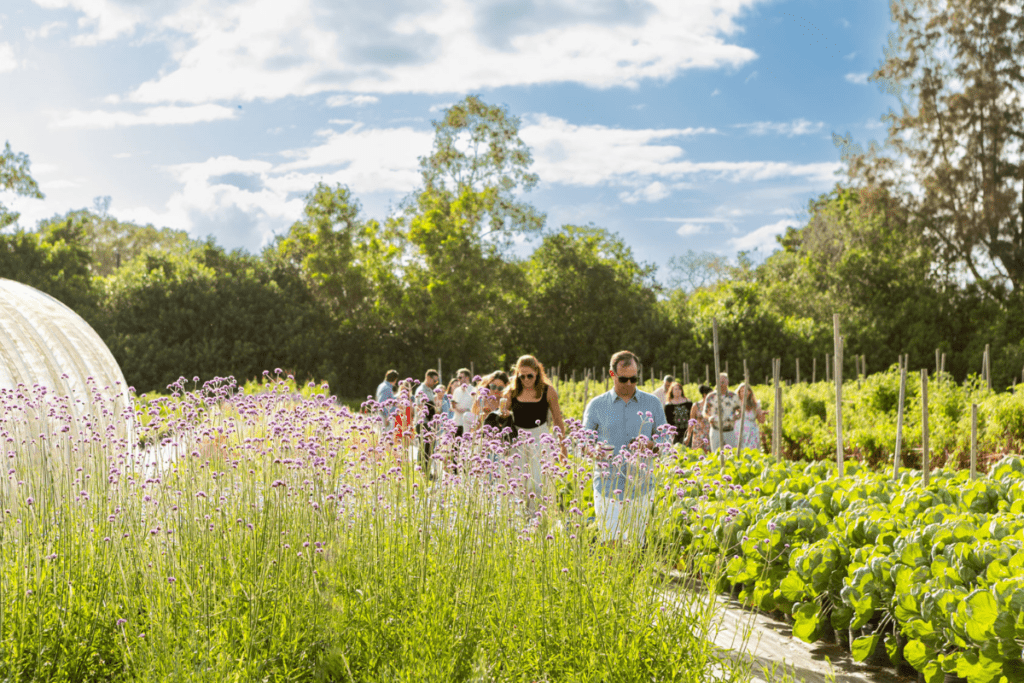
The Market Grows
In 1982, Epcot debuted The Land exhibit. Darrin Swank, a then 15-year-old who grew up roasting freshly shucked corn and riding wagons filled with hay on his family’s farm in Pennsylvania, glided on a boat through the Disney greenhouse filled with hydroponic lettuce, tomatoes, lemons and other food grown with just water and nutrients, but no soil. Darrin knew in his bones it was the future of farming.
Jodi and Darrin Swank sowed their first seeds at Swank Specialty Produce in 2001 in Loxahatchee, about 17 miles from West Palm Beach, growing pesticide-free, hydroponic produce just like Darrin saw decades ago on that family trip to Orlando.
When the first crops came in, Jodi sent letters to about 15 local chefs in Palm Beach County offering to sell them their lettuce. She received one response—Leonardo Cuomo, the chef at Buonasera Ristorante visited the farm, saw their produce and became their first customer.
Soon she started knocking on the back doors of Delray Beach restaurants, armed with a box of fresh-picked greens to show to the chefs. Café Boulud signed on, and sales exploded as word got out to chefs around Palm Beach County. She expanded and began to attend the West Palm Beach farmers markets, toting her lettuce, arugula and basil to sell every Saturday. The farm’s following grew so much Darrin decided to try his hand at other seeds. They diversified from three products to 30 in one year.
Chef Dean Max, fabled mentor to chefs Paula DaSilva, Adrienne Grenier, Jeremy Ford and more, visited the farm and became their first guest chef. That relationship led to him cooking lunch on the farm.
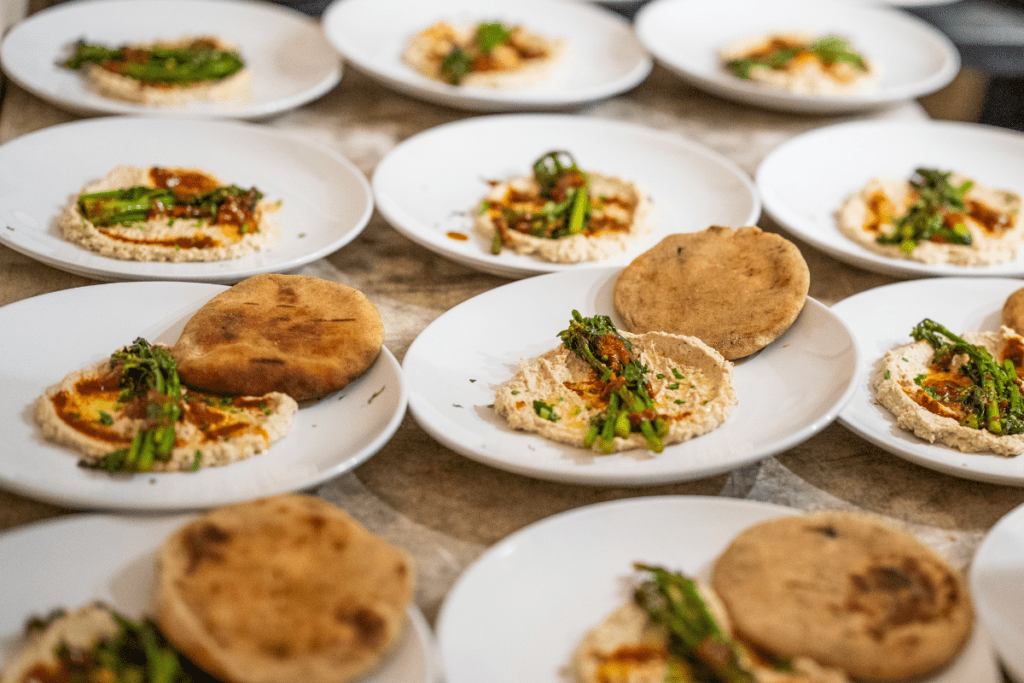
At that first lunch, platters of smoked fish dip with farm-harvested radishes, broccoli florets and sweet baby carrots for dipping circulated among the guests. Deviled eggs with crispy shallots bobbed around the communal tables set up on the hay-strewn ground. Next came bowls of chilled curry cauliflower soup with spicy peel-and-eat royal red shrimp on the side along with salad dishes overflowing with those famous Swank greens. And for the finale, fried fish with all the fixings, grilled pork loin with kumquat chutney and mache greens landed at the tables.
“We had absolutely no tent, nothing. It was a gorgeous day in January 2012. The sky was as blue as could be, and we had 65 guests,” Jodi said.
Farming is hard work. We do everything on this farm by hand.
—Jodi Swank
Lunch led to dinner, and the Swanks invited charities to get involved as a fundraiser. They brought in popular mixologists, and more guest chefs followed. Today, the farm grows over 350 varieties of food, and they challenge the guest chefs to incorporate the bounty into their menu.
“We are the growers, but we support other small businesses that can help guests learn about what’s in the local community and the local support that is so desperately needed,” Jodi said.
Then the pandemic hit and the Swanks had two shade houses full of lettuce, greens, micros and vegetables. Like other Florida farmers, they started offering a drive-thru farm share. As sales ebbed, they started a farmers market and invited 10 other essential vendors. The line went from the barn to the parking lot as they monitored the crowd level of the market, ensuring it stayed at the allowed 35 people.
Post-pandemic, as people returned to grocery stores, Jodi leaned on her 19 years of experience at West Palm Beach farmers markets and a lengthy rolodex of vendors to go all-in on their market.
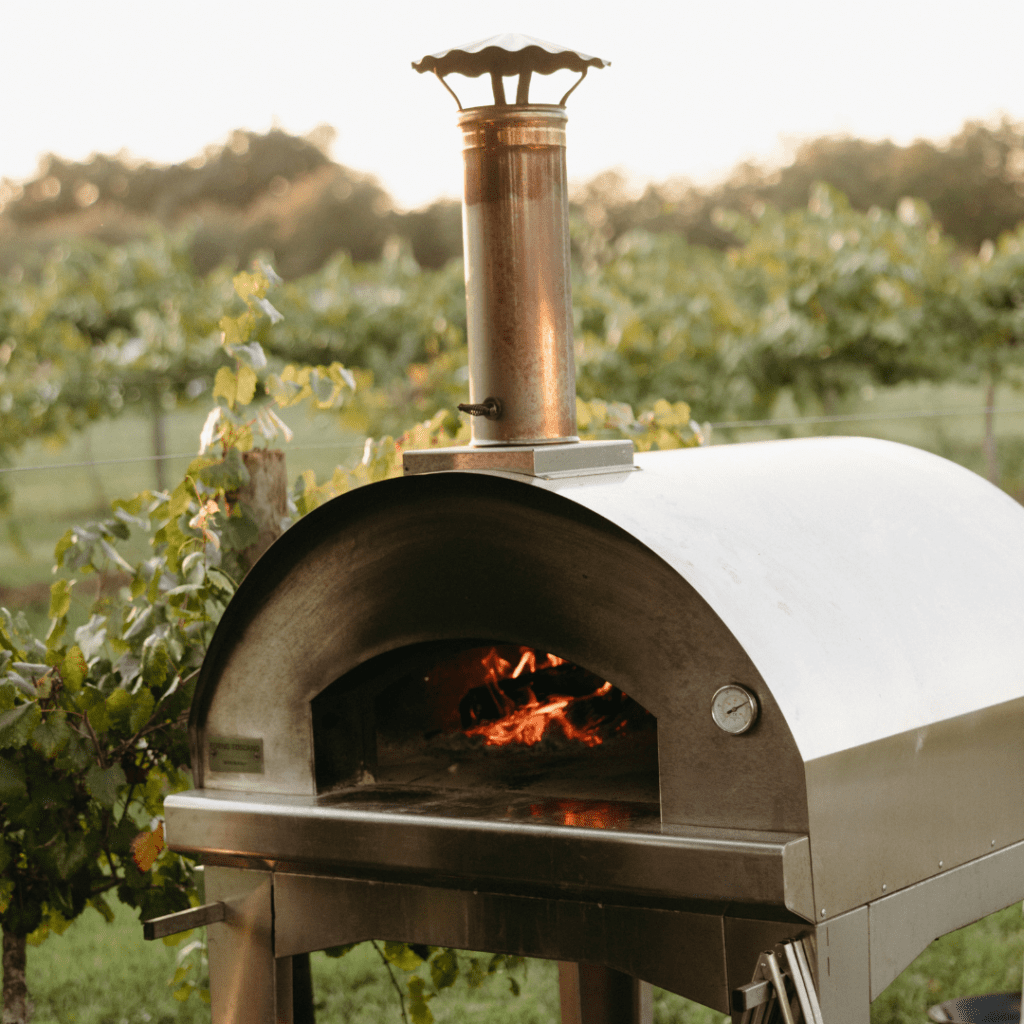
Each year the markets shut down June through September when the Florida heat rages, and Jodi looks for new culinary vendors while plotting the schedule of Swank Table Family-Style Dinners. She limits her selection to artisan food and drink producers. No jewelry, crafts or art. Come fall, 30 or so vendors, some who have been at their market since the beginning, are ready for business.
“I am not trying to expand it to 100 vendors. All I want is for you to come to the farm, shop the four or five aisles that we have, and go home with local food that will last you the week,” Jodi said.
During the market, local bands play on the stage, excited children feed the sheep and cows, and visitors amble through the field where bags of fresh crops grow hydroponically, just like Darrin saw on his trip to Epcot in 1982.
See what chef Niven Patel is up to at Feal the Rancho
“Farming is hard work. We do everything on this farm by hand. We have one tractor and workers that have been with us for a very long time,” Jodi said. “It is expensive to grow food sustainably, but I love partnering with charities for our farm dinners—I can help a battered woman, a child, an animal, a library. I know what we are doing will help at least one person.”
Starting in November, Swank Specialty Produce lights up with a 10-dinner series, including a Farmers Market Hoe Down. Bales of hay dot the space and country singers Jordan Oaks and Tommy Lynn supply the tunes. Dance instructors teach the art of weaving, scooting and brushing on the
temporary dance floor. Farm boxes full of great gifts for the holidays are available for purchase and a menu of wood-fired and house-cured meats, crisp watermelon radishes, red-veined sorrel and whatever else is popping at the farm, fuels the shindig. Also on the list for this season is a Día de los Muertos celebration of life dinner and an Alice Waters tribute dinner celebrating her iconic Edible Schoolyard project and the international Slow Food Movement.

The Future on the Farm
The fear Shitama has about the available land getting gobbled up is evident along U.S. Route 441 in Palm Beach County, where big farms have disappeared to make room for development. But small farms, like Swallowtail Farm, Swank Specialty Produce and Regina’s Farm, that are engaging in agritourism may be protected through a state statute which allows them to continue growing food for their local communities.
“When you give people food that you grow and they keep coming back for more, that’s something really personal. They believe in us, they trust us—they allow our food into their home, their bodies and their kids,” Jodi said.
Farm-to-Table Feasts Across the Sunshine State


